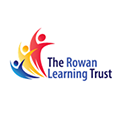Phonics and Early Reading

At The Acorns we are passionate about reading. We want every child in our school to leave us not only with the mechanical ability to read but with a love of reading and a desire to read more and more each day.
Our enthusiasm for reading comes from an understanding of the many benefits that it can offer all people. Research suggests that 4 year olds from a disadvantaged background have heard around 30 million less words than their more advantaged peers. Reading plays a key role in closing this vocabulary gap. Therefore, vocabulary-rich books are at the heart of our daily school life.
Reading is vital in providing our children with the ability to unlock all other areas of the curriculum and wider learning. Furthermore, without strong reading and comprehension skills children struggle to become independent, creative writers.
We believe that reading provides our children with vital opportunities to use their imaginations, escape the world around them, and encounter life experiences that may not normally be available to them.
A love of reading drives every member of staff in our school to offer a diverse and engaging curriculum for all our children.
Please find below additional information regarding our Department for Education Validiated phonics scheme - Little Wandle
Why learning to read is so important
- Reading is essential for all subject areas and improves life chances.
- Positive attitudes to reading and choosing to read have academic, social and emotional benefits for children.
How children learn to read
- Phonics is the only route to decoding.
- Learning to say the phonic sounds.
- By blending phonic sounds to read words.
- Increasing the child’s fluency in reading sounds, words and books.
Reading fully decodable books
- Children must read books consistent with their phonic knowledge.
- It is essential not to use other strategies to work out words (including guessing words, deducing meaning from pictures, grammar, context clues or whole word recognition).
- Books must be fully decodable and follow the Little Wandle scheme
- Children need to read books in a progressive sequence until they can decode unfamiliar words confidently.
The role of Parents’ and Carers’
- Have a positive impact on their child’s reading.
- Should model the importance of reading practice to develop fluency.
- Children take home books they have read at school to re-read at home to build fluency.
- There are two different types of books that pupils bring home: reading practice and books to share for pleasure.
- Reading at home encourages a love of books, along with developing vocabulary and discussion.
- Parents should use voices, expression, discuss unfamiliar vocabulary, talk about the pictures, and predict what might happen next.
- Give positive yet informative feedback in the home reading diary at least 3 times a week
Supporting your child with reading
Although your child will be taught to read at school, you can have a huge impact on their reading journey by continuing their practice at home.
There are two types of reading book that your child may bring home:
A reading practice book.
This will be at the correct phonic stage for your child. They should be able to read this fluently and independently.
A sharing book. Your child will not be able to read this on their own. This book is for you both to read and enjoy together.
Reading practice book
This book has been carefully matched to your child’s current reading level. If your child is reading it with little help, please don’t worry that it’s too easy – your child needs to develop fluency and confidence in reading.
Listen to them read the book. Remember to give them lots of praise – celebrate their success! If they can’t read a word, read it to them. After they have finished, talk about the book together.
Sharing a book from our Library
In order to encourage your child to become a lifelong reader, it is important that they learn to read for pleasure. The sharing book is a book they have chosen for you to enjoy together.
Please remember that you shouldn’t expect your child to read this alone. Read it to or with them. Discuss the pictures, enjoy the story, predict what might happen next, use different voices for the characters, explore the facts in a non-fiction book. The main thing is that you have fun!
Programme Overview
/uploads/230/files/Programme Overview Reception - Y1.pdf
Phase 2 sounds taught in Reception Autumn 1
Phase 2 sounds taught in Reception Autumn 2
Phase 3 sounds taught in Reception Spring 1
How we teach blending
Quick guide to Alien words
How we teach tricky words
Resources for home:
 The Acorns Primary & Nursery
School
The Acorns Primary & Nursery
School